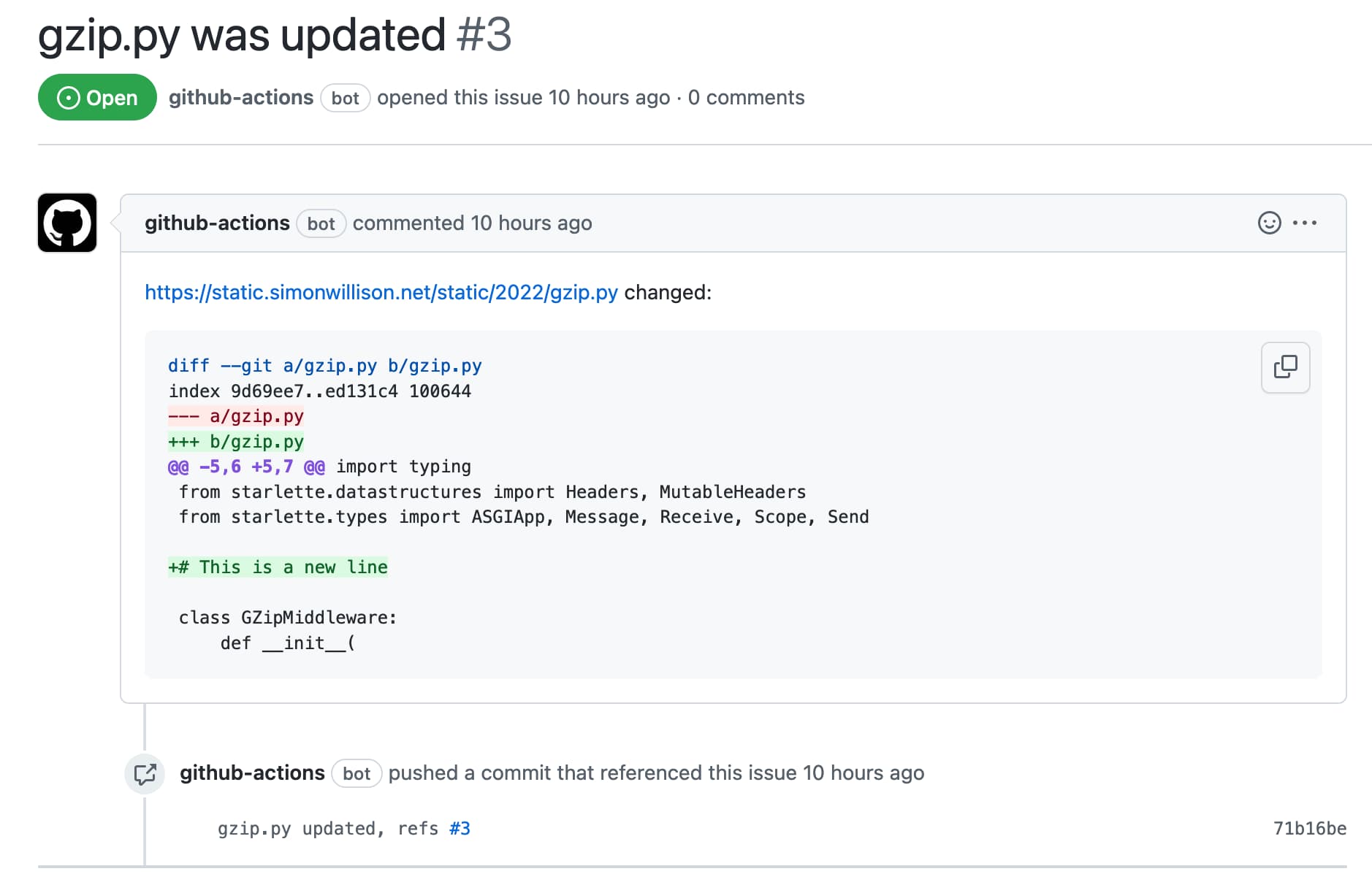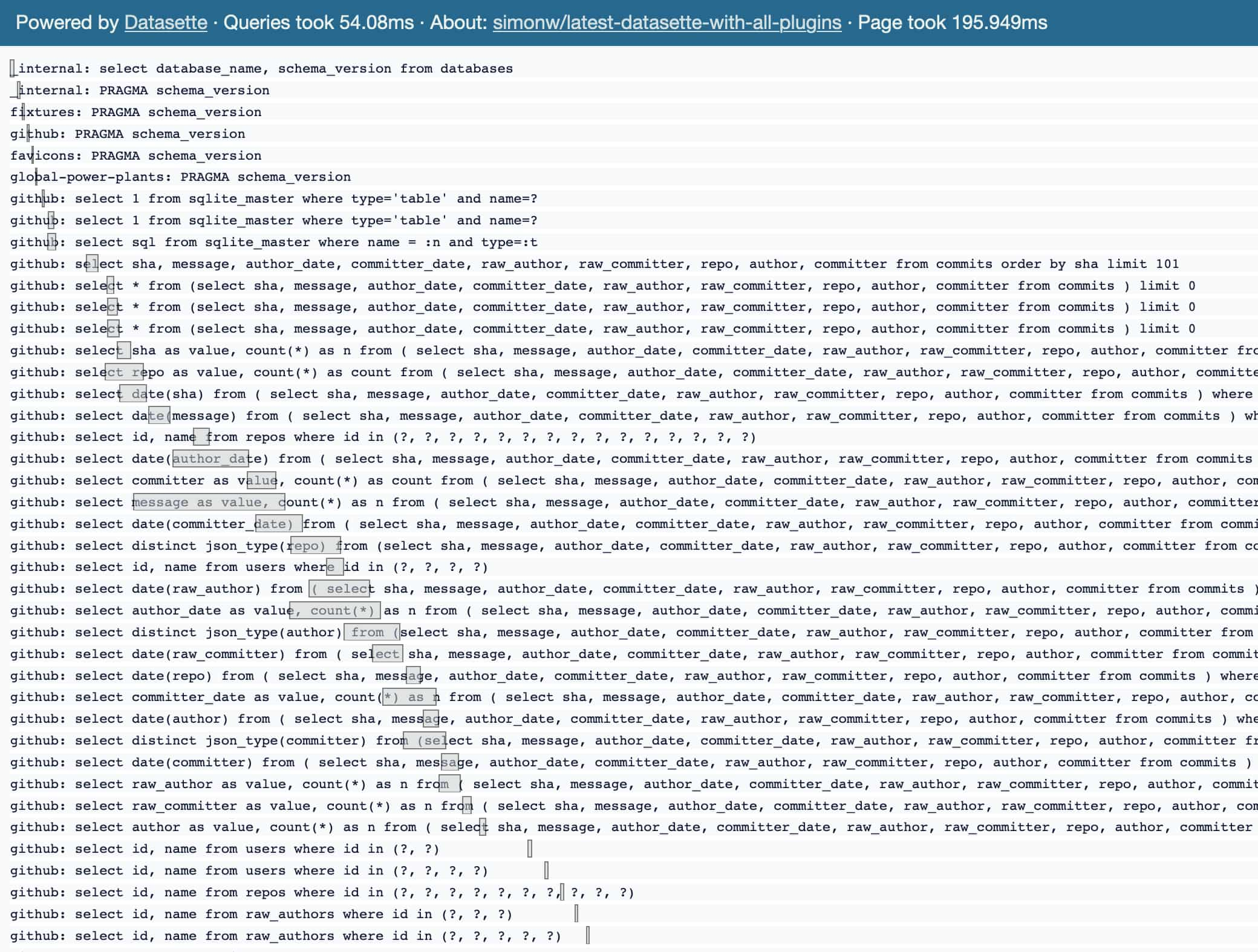8 posts tagged “gzip”
2022
Automatically opening issues when tracked file content changes
I figured out a GitHub Actions pattern to keep track of a file published somewhere on the internet and automatically open a new repository issue any time the contents of that file changes.
[... 1,211 words]Weeknotes: Parallel SQL queries for Datasette, plus some middleware tricks
A promising new performance optimization for Datasette, plus new datasette-gzip and datasette-total-page-time plugins.
2017
gzthermal (via) “pseudo thermal view of Gzip/Deflate compression efficiency”—neat tool for visualizing gzip compressed data and understanding exactly how run-length encoding and back references apply to a gzipped file.
Of SVG, Minification and Gzip. Delightfully nerdy exploration of tricks you can use to hand-optimize your SVG in order to maximize gzip compression. Premature optimization may be the root of all evil but this is still a great way to learn about how gzip actually works.
2010
gzip support for Amazon Web Services CloudFront. This would have saved me a bunch of work a few weeks ago. CloudFront can now be pointed at your own web server rather than S3, and you can ask it to forward on the Accept-Encoding header and cache multiple content versions based on the result.
Velocity: Forcing Gzip Compression. Almost every browser supports gzip these days, but 15% of web requests have had their Accept-Encoding header stripped or mangled, generally due to poorly implemented proxies or anti-virus software. Steve Souders passes on a trick used by Google Search, where an iframe is used to test the browser’s gzip support and set a cookie to force gzipping of future pages.
PNGStore—Embedding compressed CSS & JavaScript in PNGs. Cal did some further analysis on the CSS/JS to PNG compression trick (including producing some interesting images of jQuery compressed using different image packing techniques) and found it to be slightly less effective than regular GZipping.
2009
Paul Buchheit: Make your site faster and cheaper to operate in one easy step. Paul promotes gzip encoding using nginx as a proxy, and mentions that FriendFeed use a “custom, epoll-based python server” as their application server. Does that mean that they’re serving their real-time comet feeds directly from Python?

